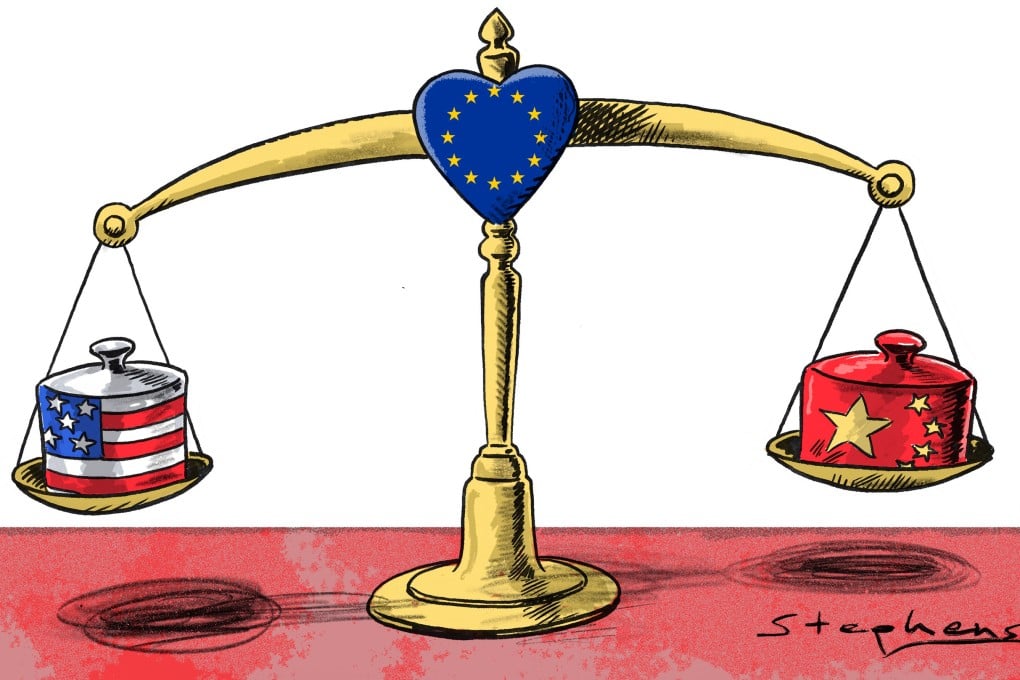Advertisement
Opinion | Europe’s search for a coherent China policy must not steer it away from its values and interests
- The EU faces one of its greatest challenges, dealing with the war in Ukraine while navigating increasingly tense relations with two of its most top partners
- To be a productive Indo-Pacific partner, Europe must not let Russia’s invasion of Ukraine overshadow sound judgment and prudent calculations
Reading Time:4 minutes
Why you can trust SCMP
19

Controversies swirl around statements French President Emmanuel Macron made in an interview during his visit to China, especially his comment that Europe should not get caught in a crisis over Taiwan “driven by an American rhythm and a Chinese overreaction”.
Europeans who bought into the narrative of autocracies versus democracies and championing a values-based foreign policy have accused Macron of downplaying European values for business deals. Facing backlash in Europe after this remark, he further defended his statement in a public lecture at the Nexus Institute in the Netherlands.
Macron reiterated his long-standing call for European strategic autonomy and defended European sovereignty. He added during an interview after the lecture that being a US ally did not mean being a vassal.
His host, Dutch Prime Minister Mark Rutte, said he and Macron agreed on the importance of the transatlantic partnership. At the same time, “an open and strategically autonomous Europe should be capable to develop those relations also with other parts of the world. To be a player, and not the playing field”.
This is the crux of the matter for the European Union. It faces one of its greatest challenges after decades of peace, dealing with a war on its continent while navigating rising tensions between the United States – its most important ally and security guarantor – and China, its most important economic partner but also a competitor and systemic rival.
Is the EU capable of being a strategic actor in its own right? Does it have the strategic thinking needed to protect its own interests and the strategic empathy needed to work with other partners to bring about a more balanced and nuanced approach?
Advertisement

